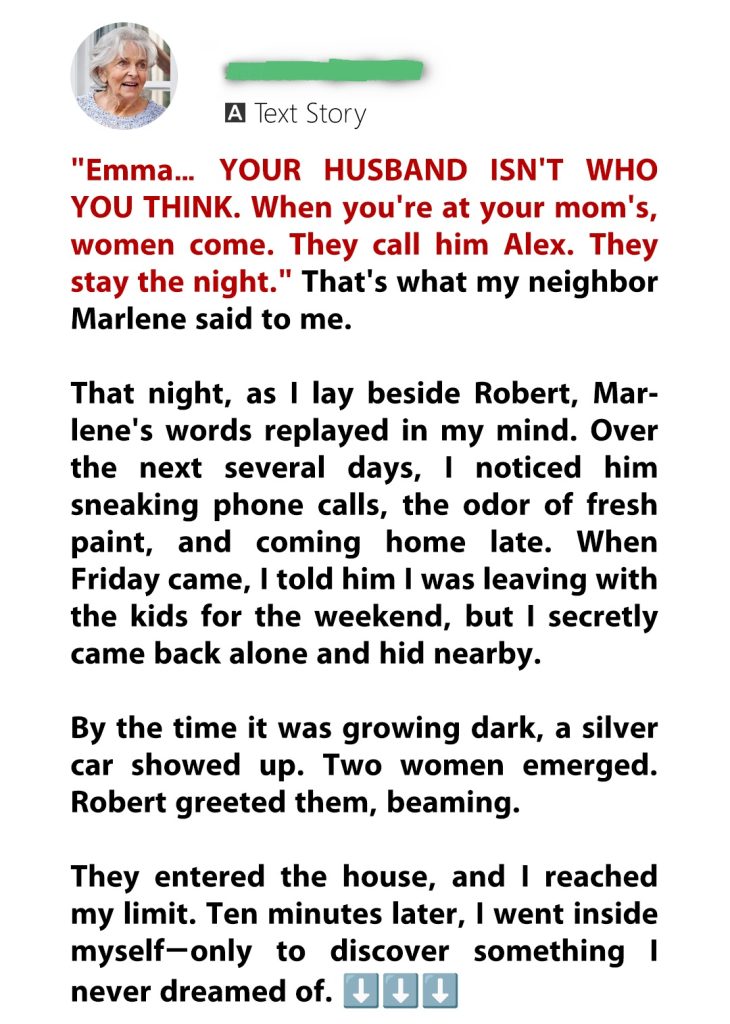For months, Emma resented her elderly neighbor Marlene. With her visor-shaded eyes and ever-present watering can, Marlene seemed to live for peering over the fence into Emma’s yard. Whether Emma was folding laundry, painting, or watching her kids play, Marlene was always there—watching. It felt invasive, almost predatory. Emma chalked it up to nosy old age.
But one sweltering afternoon, Marlene leaned over the fence without her usual props. No gardening tools. No pretense. Just her chin resting on her arms and eyes scanning Emma’s home like a hawk. Emma approached, ready to confront her.
Then Marlene whispered, “Emma… your husband is not who you think he is.”
Emma froze. Was this some twisted joke?
Marlene continued, her voice trembling. “Every time you take the kids to your mama’s, different women come. They call him other names. They stay the night.”
Emma’s heart dropped. “What names?”
“Jordan. Riley. I can’t remember them all. But I swear on my famous pancakes—I’m not making this up.”
Emma tried to laugh it off, but the sound came out brittle. She wanted to dismiss Marlene as a meddling old woman. But something in her eyes—something solemn and sad—made Emma listen.
That night, Emma confronted her husband. At first, he denied everything. But when she mentioned the names Marlene had overheard, his face changed. The lies unraveled. The truth spilled out.
He had been living a double life. Multiple identities. Affairs. Secrets buried under layers of charm and routine.
Emma’s world collapsed. But strangely, she felt grateful—not to her husband, but to the woman she’d misjudged. Marlene hadn’t been nosy. She’d been watching out for her.
In the weeks that followed, Emma found strength in unexpected places. She left the marriage, rebuilt her life, and started painting again—this time with clarity and purpose. And Marlene? She became more than a neighbor. She became a quiet guardian, a witness to truth, and a reminder that sometimes, the eyes that seem intrusive are the ones that see what we refuse to.



